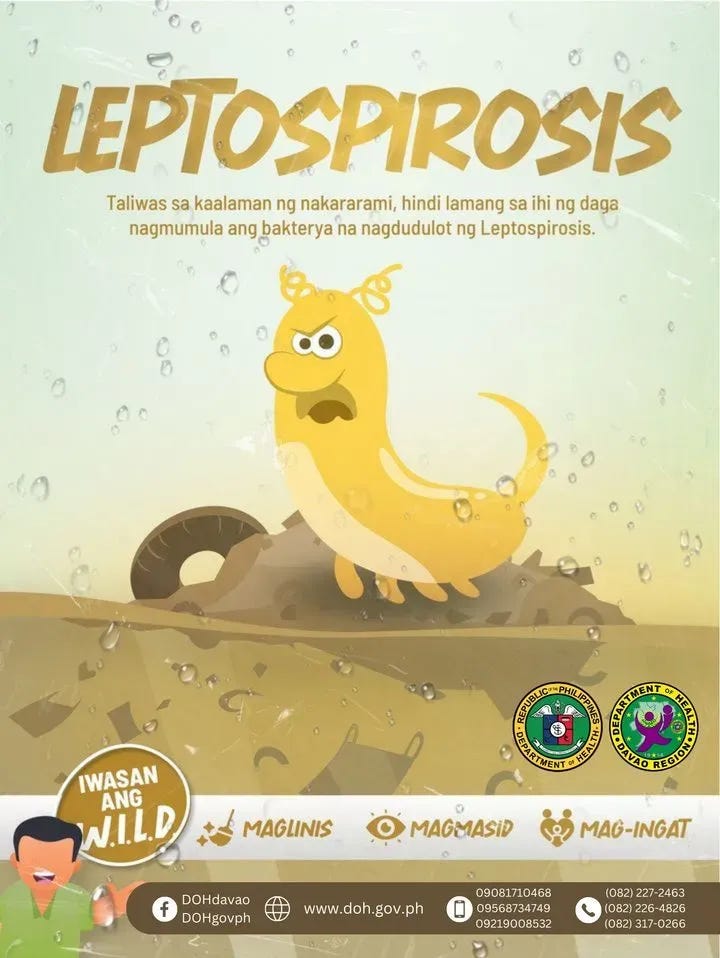Mpox
The City Health Office (CHO) remains steadfast in its efforts to curb the spread of Mpox, formerly known as Monkeypox, by intensifying contact tracing and monitoring activities across the city.
Farrah Mae Clamor, Head of the City Epidemiology and Surveillance Unit (CESU), in an interview said that four of the seven Mpox cases confirmed in Davao City have already recovered and discharged.
She also clarified that although patients have recovered, there remains a risk of recurrence if re-exposed to the virus through close contact with another confirmed case.
Dr. Sofia Corazon Zafra, Emerging and Re-emerging Infectious Diseases Program Manager of the CHO, during the 21st regular session on Tuesday said that from January 1 to June 2, Davao City has confirmed a total of seven Mpox cases.
She said that out of the 49 close contacts identified, 35 individuals have completed the mandated 21-day monitoring period without showing any sign or symptom of Mpox, while the remaining 14 contacts are currently under observation.
She said that Mpox is an infectious disease characterized by painful rashes, enlarged lymph nodes, fever, headache, muscle ache, back pain, and low energy. It spreads through close contact with infected individuals, animals, or contaminated materials.
She also emphasized that as part of its prevention strategy, the CHO has been rigorously enforcing minimum health protocols. These measures include practicing proper two-minute handwashing, using of alcohol-based sanitizers, disinfecting frequently-touched surfaces, and avoiding close intimate interactions, especially with individuals suspected of having contracted the disease.
Individuals suspected of contracting Mpox are encouraged to immediately isolate and seek prompt medical care by notifying the local health authorities.
Leptospirosis
The Davao City Health Office (CHO) warned Dabawenyos anew of the risks of acquiring Leptospirosis during the rainy season.
Dr. Sofia Corazon Zafra, Medical Coordinator of the CHO’s City Emerging and Re-emerging Infectious Diseases, said in an interview with the Madayaw Program over city-owned Davao City Disaster Radio, that post-exposure prophylaxis medicines are available for free in all barangay and district health centers.
She urged Dabawenyos who were exposed to flood waters to wash the exposed area properly, and go to the nearest health center to receive medical care and prophylaxis within 24 hours.
Leptospirosis is a zoonotic disease caused by the Leptospira bacteria. The infection can be transmitted from the infected animal through its urine, or through contaminated water or soil.
Zafra emphasized that whether or not the person has a wound on their feet, they can still acquire leptospirosis.
She said that it is important to receive prophylaxis to prevent infection.
Dabawenyos are also urged to avoid self-medicating. Once exposed to flood water, go directly to the nearest health center to receive the right type and dosage of prophylaxis.
Symptoms of Leptospirosis include fever, headache, chills, joint pain, vomiting and nausea, yellowing of skin, red eyes, stomachache and diarrhea, and rashes.
The CHO’s City Epidemiology and Surveillance Unit (CESU) recorded a total of 94 cases of leptospirosis in the city as of May 24, 2024. Out of this, 25 died of the disease.
Dabawenyos are urged to maintain a clean environment, seek immediate medical intervention, avoid self-medication, and to remain vigilant against diseases during rainy seasons.






